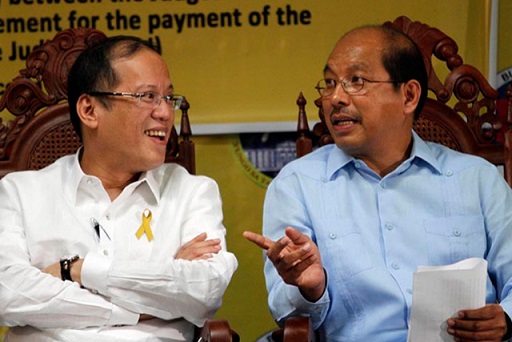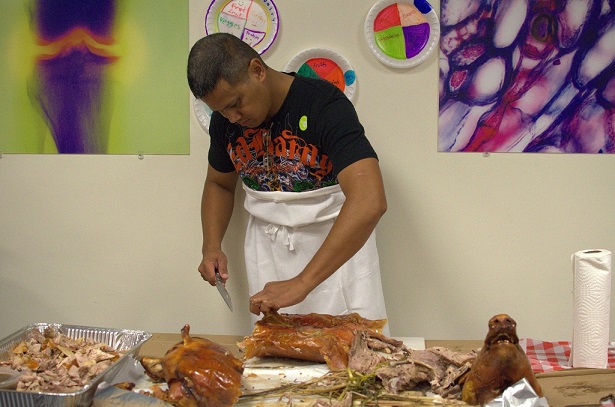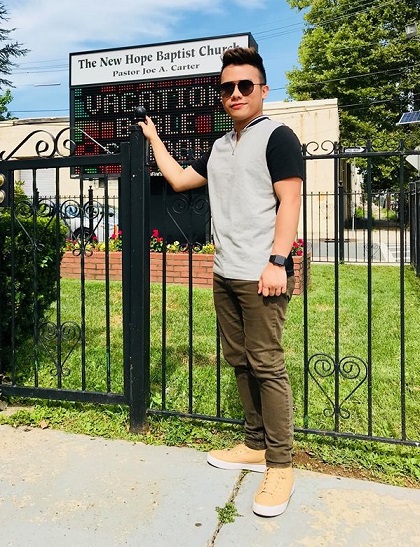In the hysteria over TPS, choose lawyers wisely
By Jen Furer
“Of course you can apply, but when you’re denied, you can be deported and banned from coming to America for 10-20 years.”
These should be the first words immigration lawyers should tell every out-of-status immigrant. In the ongoing hysteria over the issue of Temporary Protected Status, this statement is often left unstated. If you are an undocumented Filipino immigrant, it’s wise to keep this in mind as you navigate this new terrain called TPS lest you fall into the precipice which may be concealed by some immigration lawyers.
I should know. My family had been a victim of some of them.
When I first heard that the Philippines had applied for TPS, I was glad because if approved by the U.S., it meant that the deportation process for out-of-status Filipinos would be temporarily delayed. Temporary Protected Status is a form of immigration relief offered by the U.S. to delay deportation for immigrants who have no “home” to go back to because their country may be in a state of war or suffered devastation from a natural disaster.
But then I heard that if the Philippines is granted a TPS by the U.S. government, any out-of-status Filipinos can apply — even those who don’t have family members who were affected by the typhoon in the Philippines. People have talked about being able to travel internationally and being able to get work authorization. The U.S. has yet to grant Manila’s request and so no further details are available,
Here’s what happened to my family.
In the 1990s, my father’s immigration lawyer advised him to apply for political asylum. Back then, a lot of Filipinos were applying for permanent residency with a green card even if they weren’t directly affected by the unrest in the Philippines. That gave my father the motivation to apply. His lawyer’s reassuring words were, “Of course you can be eligible, and when you’re denied, we can always appeal endlessly. You won’t be deported. No one gets deported.”
My father put his trust in the lawyer and believed my parents and my brothers would be granted green cards and would never be deported. Sadly, we found out that my family was not even eligible to apply for political asylum. The lawyer was disbarred and another lawyer took over our case filing “suspension of deportation” as suggested by the Immigration Judge.
On December 10, 1999 one of my brothers was deported. We then filed numerous appeals and hired a few more prominent lawyers in New York and California who told us that we might have a chance of reversing the decision of deportation.
On October 27, 2005, my parents and two brothers were picked up at 4 in the morning, hand-cuffed, detained for 29 days, deported, and then banned for 10 years. I had no family and lost nearly all of my life’s savings to lawyers who instead of telling it like it is, gave us one bad advice after another.
My advice to those who are thinking of applying for TPS:
1) Read. Be informed. Don’t just read the headlines, Facebook status updates or the 140 character bytes of Twitter feeds. You really have to understand if you’re eligible or not and understand what the United States Citizenship and Immigration Services (USCIS) offers. The USCIS has this information about TPS.
2) Be prepared to be denied. Yes. There is a possibility that you are not eligible. Don’t listen to false hopes even if your lawyer says “you will not be deported.”
3) Learn the consequences. Yes, you can be deported. You have to accept that if you’ve been undocumented, there’s a chance that you’ll be deported, which means you can be picked up from your work or your home and hand-cuffed. Detention centers are not like Club Med. It’s a real jail!
4) Read up on Illegal Immigration Reform and Immigrant Responsibility Act of 1996. It clearly states in the act that if someone had overstayed their visa in the United States by more than 365 days, that person could not return to the U.S. for 10 years. I am a U.S. citizen and had an approved petition for my parents. When the petition was processed, the US Embassy in the Philippines denied their application because of the 10-year ban that we didn’t know about. One of my brothers, who was deported in 2005, received his green card in 2011 through a waiver due to his wife’s extreme hardship. He still gets held up at some Ports of Entry for 24 hours because his name is still on the “black list.”
5) Consult the nearest Philippine Consulate in your area. Contrary to what many may think, the Philippine Consulate has your interest. As they are not in business, they can give you advice, but you have to be willing to listen. Hopefully they can refer you to reliable and trustworthy immigration lawyers.
Jen Furer is the author of “Out of Status,” a memoir about her family’s pursuit of the American Dream and their experience navigating the broken immigration system.











